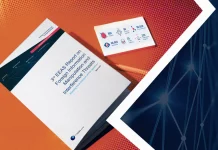
By The Local
Sweden’s most respected foreign policy institute has accused Russia of using underhand methods, including fake news, counterfeit documents, and other disinformation, to influence Swedish decision-making.
The report by Martin Kragh, a Russia expert at the Swedish Institute of International Affairs, is the first empirical study detailing Russia’s use of ‘active measures’ in its information war against Sweden, which is largely directed at steering the country away from joining Nato.“The study lies within a subject area which a lot of people are discussing right now, and we want to contribute to that discussion,” Kragh told Sweden’s Dagens Nyheter newspaper.
“It is completely normal for a foreign minister to say that some development concerns them, or is positive, but what we see as a problem is when illegitimate methods are used to try to influence opinion or decision-making in Sweden.”
“It may not necessarily be politically effective to spread false documents, but we believe it demonstrates an intention to influence decision-making and that in itself is a reason to try to document and understand the ways in which it is carried out.”
In the study, which is published in the Journal of Strategic Studies, Kragh argues that over the past few years, Russia has increasingly been returning to what the KGB historically referred to as “active measures” to impact public opinion in Sweden.
According the report, “active measures” are designed “to hamper the target country’s ability to generate public support in pursuing its policies”.
Such measures have included the Russian government deploying troll armies on Swedish Twitter, launching its own Swedish-language version of the news site Sputnik, and spreading fake documents, 26 of which Kragh has identified.
“In social media, troll armies are targeting journalists and academics, including the ‘hijacking’ of Twitter accounts,” the report reads.
“Disinformation on NATO and suspected intrusions by foreign submarines have appeared in Swedish media, themes which were picked up by Sputnik, RT and other sources of Russian public diplomacy and broadcast to an international audience.”
Kragh and his colleagues identified ten forged documents relating exclusively to Swedish affairs, three of which they examine in detail in the paper.
On 21 February 2015, a letter signed by Swedish Minister of Defence Peter Hultqvist appeared on social media through a Twitter identity of a well-known Swedish military affairs journalist. The letter, sent to Magnus Ingesson, CEO of BAE Systems Bofors AB, concerned the sale of weapons to Ukraine.
On 2 September 2015, a letter signed by Tora Holst, head of the International Public Prosecution Office in Stockholm, was uploaded to CNN’s Istory website and later broadcast on Russian state television and pro-Kremlin media.
The letter purported to concern an attempt to quash prosecution of a Swedish citizen for war crimes committed in Ukraine.
The third letter, uploaded to Pressbladet, purported to be from Nada al-Qahtani, a female IS leader to Swedish Foreign Minister Margot Wallström, and concerned a conspiracy from Sweden to send weapons to Islamic State via Turkey.
Kragh argues there are enough factual errors in all three letters to declare them forgeries — Ingesson, for example, was no longer CEO of BAE Systems Bofors AB at the time of the letter — but says that they have all continued to resurface in other media as evidence for the conspiracy theories.
Kragh also mentions a fake telegram which suggested that former Swedish foreign minister Carl Bildt might be appointed Prime Minister of Ukraine.
He argues that instead of reporting Bildt’s denials, Swedish media should have reported this as a Russian attempt to spread disinformation.
By The Local





